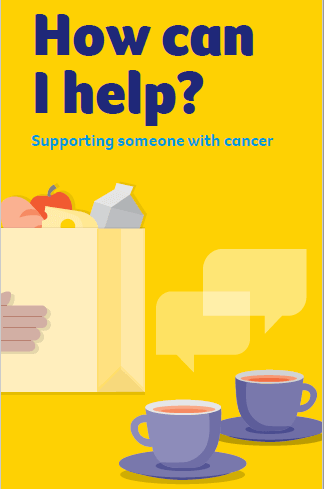- Home
- About Cancer
- Coping with a diagnosis
- Emotions and cancer
- Getting support
Getting support - Emotions and cancer
Getting support is essential when facing a cancer diagnosis, and there are many resources to help you through this difficult time.
Learn more about:
- Overview
- Offers of help
- Ways family and friends can help
- Other sources of support
- When you need professional support
- Health professionals who can help
- Practical and financial help
- Finding useful contacts
Overview
Even though family and friends can be there to help, many people still find it hard to ask for, and then accept, support. When you are dealing with treatment and side effects, your support network can make an enormous difference.
Family and friends usually appreciate being allowed to provide support – it helps them feel useful. Some people don’t have family and friends who are willing or able to help, but there are also many sources of professional support.
Learn more about how you can help someone with cancer.
Offers of help
People are often willing to help if they know what you need. Family and friends can support you in different ways. Some people will be able to talk about the cancer and comfort you if you are upset. Other people may prefer to offer practical support. If you have a partner or another person providing most of your care, an important role for other family members and friends may be to support that carer.
Some people like to use an app on their phone or computer, such as Gather My Crew. The app allows you to list tasks and set up a roster, so people can choose activities that match their availability and interests. This can also be a convenient way to share updates with your social circle.
Talking to a counsellor made me realise I don’t have to go it alone. We have good friends and a great community who will support me. I just needed to be able to step back and see the possibilities.
Kate
Ways family and friends can help
The suggestions below may be a useful prompt when people say, “Let me know if you need anything.”
Providing practical support
|
|
Keeping others informed
|
|
Offering companionship
|
|
Keeping you involved
|
→ READ MORE: Other sources of support
Podcast: How to Help Someone with Cancer
Listen to more episodes from our podcast for people affected by cancer
More resources
Dr Michael Murphy, Psychiatrist, NSW Health, and Conjoint Senior Lecturer, UNSW, NSW (clinical review); A/Prof Anne Burke, Co-Director, Psychology and Allied Health Lead, Cancer, Central Adelaide Local Health Network and The University of Adelaide, SA; Hannah Chen, Psychologist, Cancer Council Queensland; Hazel Everett, Clinical Nurse Consultant, Cancer Services, St John of God Subiaco Hospital, WA; Shona Gates, Senior Social Worker, North West Cancer Centre, TAS; Dr Jemma Gilchrist, Senior Clinical Psychologist, Mind My Health and Crown Princess Mary Cancer Centre, Westmead, NSW; Sandra Hodge, Consumer; Dr Michael Murphy (see above); Caitriona Nienaber, 13 11 20 Consultant, Cancer Council WA; Dr Alesha Thai, Medical Oncologist, Peter MacCallum Cancer Centre, VIC; Alan White, Consumer.
View the Cancer Council NSW editorial policy.
View all publications or call 13 11 20 for free printed copies.

